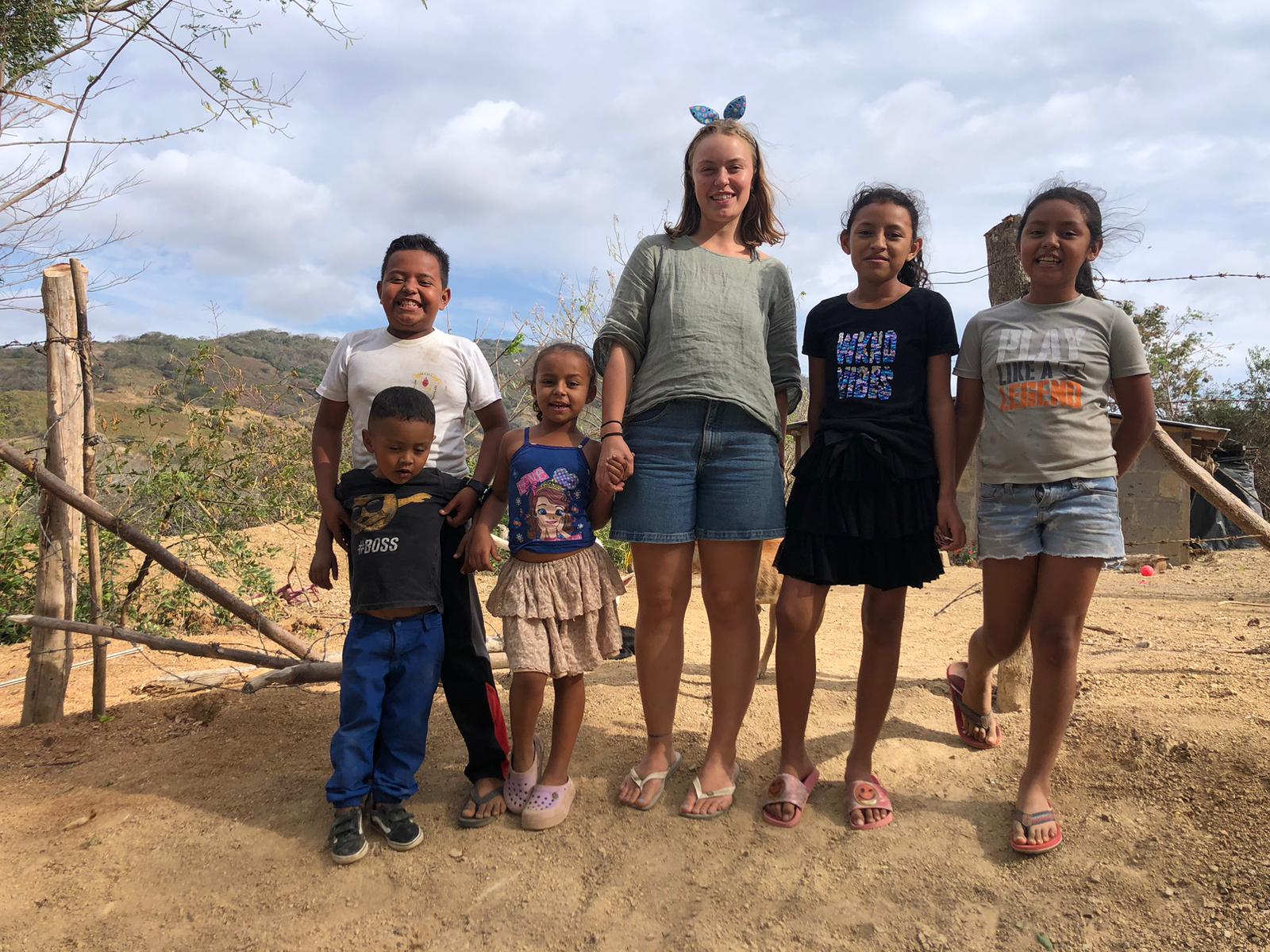Volunteer Update | Eleanor
Volunteer Eleanor shares about her experience so far and what it has been like living in a rural community.
I’ve been out in the countryside for about a month now. When I first arrived, I had a massive culture shock and understanding the rural Nicaraguan Spanish accent was really challenging. I was overwhelmed by the warm welcome I received, and after a few days, I grew to love living so close to nature. I moved in with a family, who live in a little house in the community of La Hormiga in the region of Carazo.
On my first night, I was crawling into bed, and the young daughter, Alexandra, jumped in with me and squeezed me tight. I named her my little “mascotita”, and from then on, she refused to sleep anywhere else but by my side! As we drifted off, Maryuris, the mother, and I chatted and got to know each other. We spoke about anything and everything I could manage to squeeze out in my patchy Nicaraguan Spanish.
Even thought I felt very far away from my home in North London and we couldn’t have come from more separate worlds, Maryuris had opened the door and let me into her world. Now that we’re close friends, we’ve reached a new level of cross-cultural communication. It’s a mix of mostly Spanish, combined with some bits of English I’ve been teaching her, and lots and lots of laughter when we have to resort to sigh-language charades. She’s taught me so much about her life, including, most importantly, to make tortillas from scratch!
One evening, I was drawing her 10-year-old son, Osman, and we painted all the names of our family. He got me to write down my name as he wasn’t sure how to spell Eleanor in English. With a confused and scrunched up frown, he fumbled over the word before reading it out as Elena Amor. I couldn’t help but cackle at this adorable mistake. It’s been my name with the kids of La Hormiga ever since.
These kids are all one unit. It’s something I’ve learned here which is so different to my culture – this sense of community which ties everyone together. It took me a while to figure out who was related to who, since they all call each other brother and sister. Every child belongs to every parent and is loved as if they were their own.
If there were seven kids at the house playing games, Maryuris would bring out food and drinks for everyone, not just her own. She’d braid Kendra’s hair, who lives next door, and dresses her in her own daughter’s clothes. This closeness they have amongst all the families is something I think people in my country could learn from. It means no one gets left behind, no one is forgotten.
In this same sense, my time in La Hormiga was not just spent living with one family, but as part of a whole community. I’ve become especially close friends with the families of Sara and Victoria. Both of them also work with CEPAD, as part of the youth leadership and family garden programs. I would often go to their homes with a trail of little ones behind me and play games all afternoon out in the sun. They would never let me go home without a belly full of rice, beans, and all sorts of Nicaraguan delicacies.
One time, as we were waiting for lunch, one of the boys came in with an iguana he’d caught. Osman asked if I’d like to hold it, something I’d never done before, but I swallowed my nervousness and I think I played it off well. He asked if I’d like to eat its eggs, and about five minutes later, he returned with the same iguana, but limp, dead in his arms. “Poor thing,” he said as he looked up at me with a cheeky grin before handing it over to Sara to retrieve the eggs and cook them.
I’m definitely very far from North London, but it’s moments like these which I will carry home with me as little treasures to remember when I’m a million miles away in rainy England.




